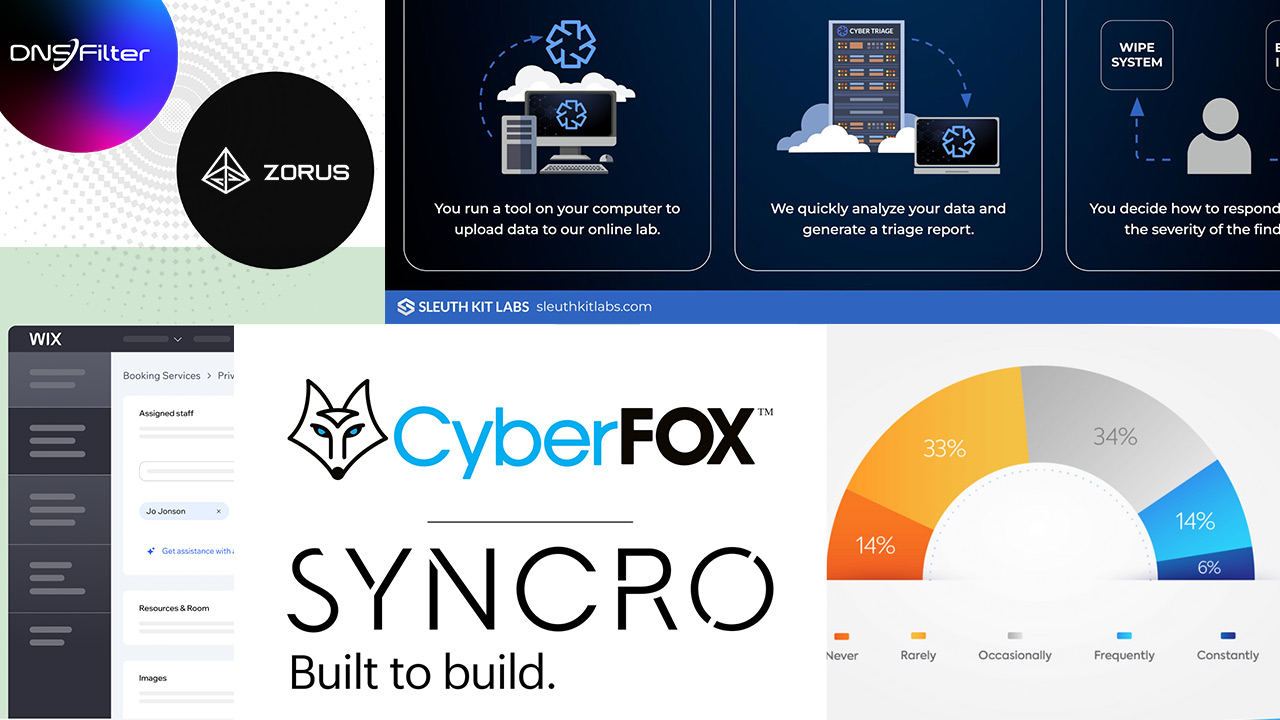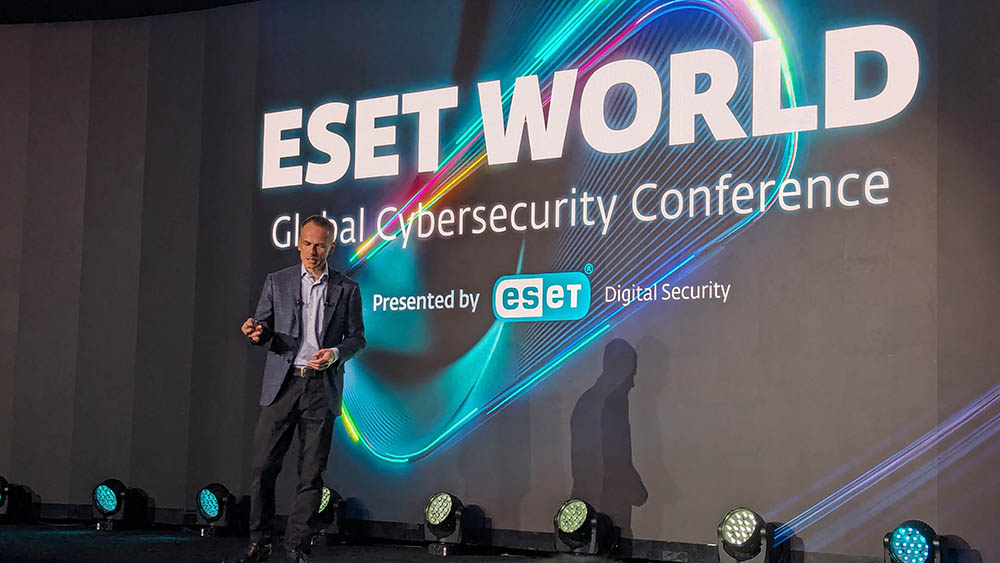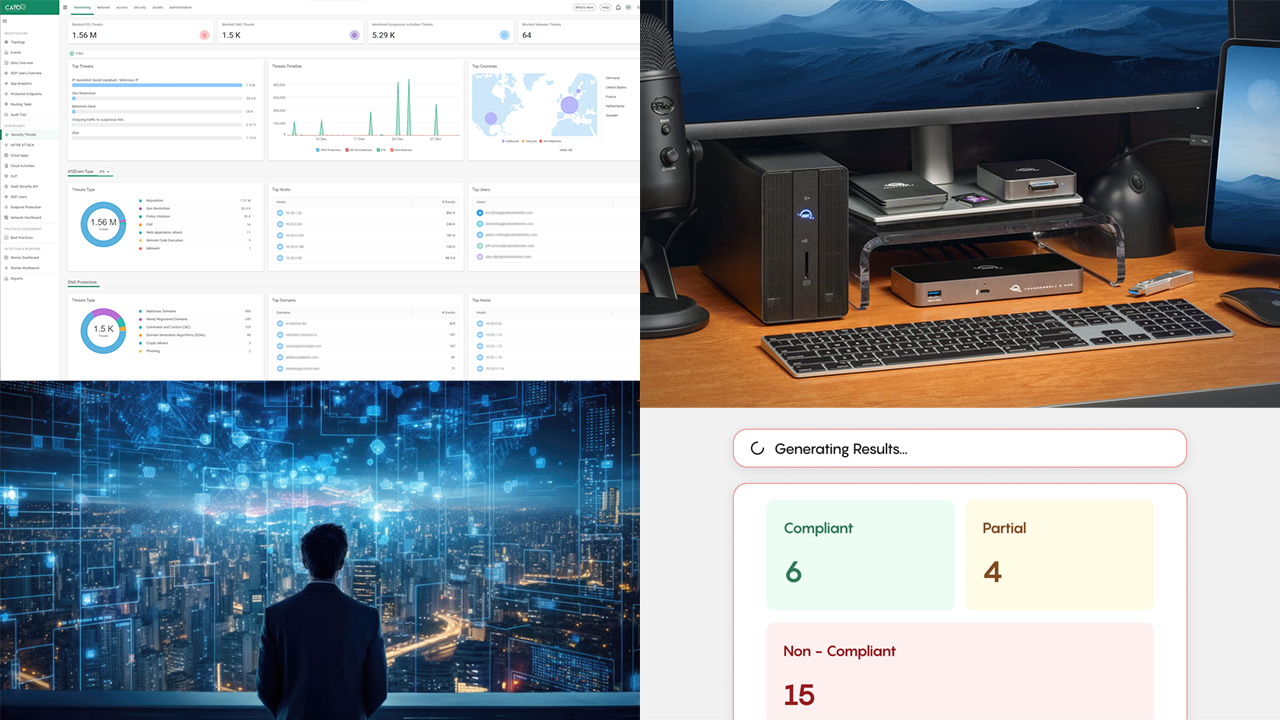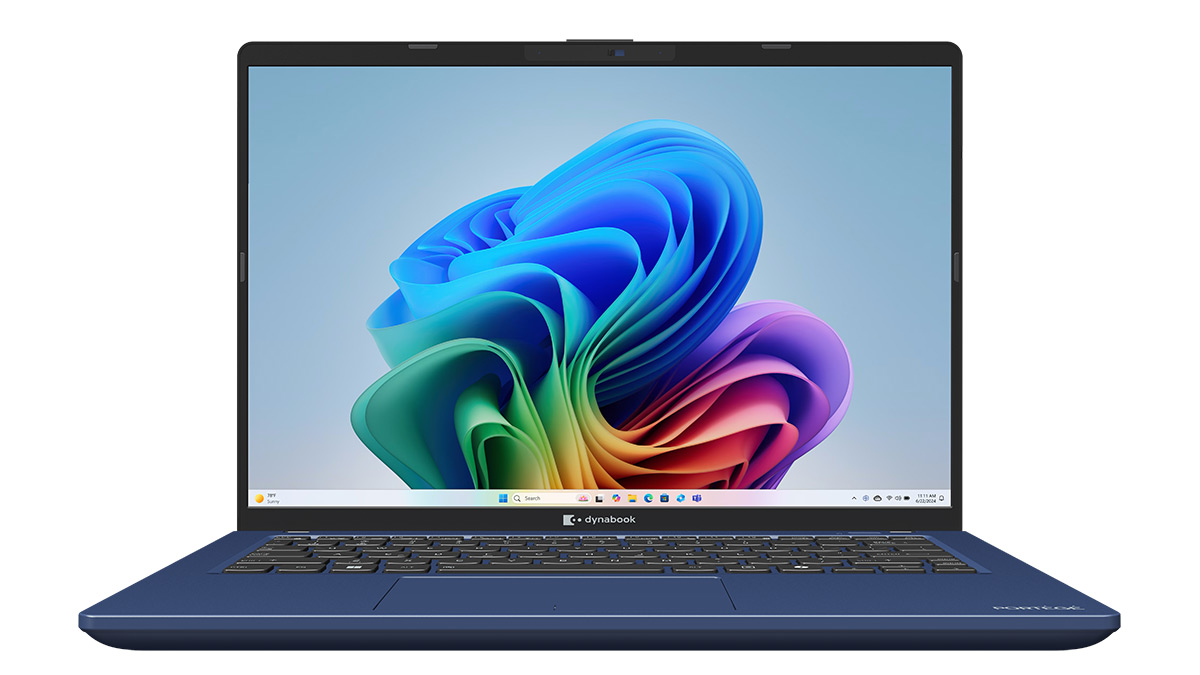THE 2022 NOTEBOOK PRIMARIES are in full swing! Major OS parties are looking for the laptops that will win over business voters this fall. OEMs have been prepping their contenders and hitting the PR campaign trail in hopes of landing at the top of the ticket.
It’s been a long road for the candidates. Processors have been running hot, memory is exhausted, and batteries are drained. Some have been rocked by hacking scandals, blackmailed into campaigning as a puppet of the nefarious with the hope of having their drive contents unencrypted. Many more have powered down or gone into kernel panic under the constant pressure. Several, however, have endured and stood out on the trail, winning over business audiences with fancy new features or distinctive good looks.
Our crack election reporter believes in well-informed voters. Let’s take a closer look at the major OS political parties and the notebook candidates that may square off in the general election.
The Winublican Party
For nearly 30 years the Winublican Party has enjoyed strong support among business voters around the globe. The party espouses to be business friendly, offering full management capabilities with a strong emphasis on security. Winublican voters are increasingly mobile, particularly in the post-pandemic era as companies embrace flexible and work-from-home schedules.
There is incredible competition in the Winublican Party, as most OEMs put out dozens, and sometimes hundreds, of potential candidates every year. To reach the top of the ticket, a notebook must offer compelling performance, distinctive styling, and the features important to the base.
Winublican Candidate #1 – Dell Latitude 9330
 The first 13-inch device in Dell’s top-of-the-line 9000 series of Latitude notebooks may have what it takes to win over business professionals with its 2-in-1 form factor and enhanced collaboration features. It’s the thinnest notebook in the portfolio with a 16:10 InfinityEdge display and packs the performance and connectivity hardware voters demand like 12th Gen Intel Core Processors and Wi-Fi 6E.
The first 13-inch device in Dell’s top-of-the-line 9000 series of Latitude notebooks may have what it takes to win over business professionals with its 2-in-1 form factor and enhanced collaboration features. It’s the thinnest notebook in the portfolio with a 16:10 InfinityEdge display and packs the performance and connectivity hardware voters demand like 12th Gen Intel Core Processors and Wi-Fi 6E.
That alone won’t help it stand out, but the 9330 has promised to make mobile work better and safer. In one campaign commercial it vowed to fight onlookers with Intelligent Privacy, concealing information on the screen when it detects someone peeking over your shoulder. It says it will dim the screen automatically when you look away, helping save valuable battery life, and promises to use its dual electromechanical webcam shutter to lock out snoopers. Finally, the 9330 is wowing potential voters with its collaboration touchpad, offering buttons that magically appear there to control core commands in Zoom meetings like mute/unmute, video on/off, screen share, and chat.
Winublican Candidate #2 – ASUS Zenbook Pro 16X OLED
 This candidate materialized out of nowhere in May and has a simple message to voters: Compromise isn’t going to win in a hard-fought general election.
This candidate materialized out of nowhere in May and has a simple message to voters: Compromise isn’t going to win in a hard-fought general election.
And compromise it does not with its up to 12th Gen Intel Core i9 Processor, NVIDIA GeForce RTX 3060 GPU, up to 32GB of LPDDR5 memory, and up to 2TB PCIe 4.0 SSD. Its display grabs eyes and doesn’t let go, thanks to the 100% DCI-P3 16:10 4K OLED HDR NanoEdge touchscreen. It immediately stands out from other contenders with before-unseen features, such as its Active Aerodynamic System Ultra that auto-tilts the keyboard 7 degrees to a comfortable typing angle and helps keep it cooler under pressure. It has two additional tricks up its sleeve that others don’t: an innovative dial that allows fingerprint control of creative parameters in Adobe applications, and an extra-large haptic touchpad with number pad entry. Not all voters may be interested in these features, but still, the candidate makes a lasting impression.
Winublican Candidate #3 – Lenovo ThinkPad P16
 Some business voters need to get serious work done and are looking for notebooks with the power to deliver. Lenovo has fielded ThinkPad workstations in previous elections, hoping either the P15 or P17 would lure enough votes to get on the ballot. However, Lenovo’s P16 could get to the top of the ticket.
Some business voters need to get serious work done and are looking for notebooks with the power to deliver. Lenovo has fielded ThinkPad workstations in previous elections, hoping either the P15 or P17 would lure enough votes to get on the ballot. However, Lenovo’s P16 could get to the top of the ticket.
And it’s easy to see why. Sixteen inches seems to be the new sweet spot for narrow bezel displays. This one is a lovely 16:10 low blue-light display with a high screen-to-body ratio, and even an OLED touch option with pen support. A wide touchpad, integrated fingerprint reader, full high-definition camera, and Wi-Fi 6E keep it competitive with other candidates, but aren’t enough to help it stand out from the pack.
It’s what you don’t see that makes this candidate appealing, and that’s the brains and the brawn to handle the most demanding problems. The new Intel 12th Gen Intel Core HX CPU offers increased core count and clock frequencies while keeping power consumption in check. Voters also take note of its GPU performance, with NVIDIA RTX A5500 graphics and 16GB dedicated memory. Rounded out with up to 128GB of the latest DDR5 memory, and the tough, MIL-SPEC durability ThinkPads are known for, it’s sure to garner the workstation vote.
Winublican Candidate #4 – Samsung Galaxy Book2 Business
 Samsung is no stranger to designing devices that get elected, as its Galaxy S series smartphones are favorites among voters. Historically, its PC candidates haven’t been able to meet the same success, but the Galaxy Book2 Business is campaigning hard and might attract voters rooting for the underdog.
Samsung is no stranger to designing devices that get elected, as its Galaxy S series smartphones are favorites among voters. Historically, its PC candidates haven’t been able to meet the same success, but the Galaxy Book2 Business is campaigning hard and might attract voters rooting for the underdog.
The Galaxy Book2 Business offers the durability and security that voters should be looking for. It claims to have passed 16 MIL-STD-810H tests (though at press time cannot confirm it served in the military), performing at extreme temperature, shock, and altitude. It boasts of having an anti-spoofing IR Cam and Level3 Fingerprint recognition, and is Microsoft Secured-core PC certified, guarding against BIOS attacks, boot failure, data tampering, and corruption.
Its 12th Gen Intel Core i5 Processor with vPro, 14-inch FHD display, and 256GB SSD is a little more modest than that of other candidates, but the Galaxy Book2 Business has the chops to handle most business tasks while maximizing battery life.
The DemoChrome Party
The DemoChromes have historically favored candidates attractive to educational users and consumers who rely on Google services and prioritize issues like battery life, durability, and cost. Google Workspace today drives productivity in many businesses, making DemoChrome notebooks (also known as Chromebooks) an ideal choice for that voting bloc.
OEMs have taken notice and are fielding more candidates with the features and power to attract business voters. To reach the top of the DemoChrome Party ticket, the candidate must have distinctive style, thin and light build with premium materials, a brilliant display, and strike the right balance between performance, battery life, and price.
DemoChrome Candidate #1 – HP Elite Dragonfly 13.5-inch Chromebook
 The HP Elite Dragonfly Chromebook’s svelte profile, light weight, and graphite finish would look right at home on the desk of any executive.
The HP Elite Dragonfly Chromebook’s svelte profile, light weight, and graphite finish would look right at home on the desk of any executive.
What truly differentiates it from the pack is what’s under the hood. Like it’s Winublican competitors, it has 12th Generation Intel Core Processors at the center. The base model ships with a Core i3 and 8GB of RAM, arguably enough power for the cloud-focused needs of the typical DemoChrome voter, and it can be customized with up to an i7 and 32GB of memory. The 13.5-inch 1920×1280 BriteView IPS LCD display shines bright and can be customized with touch and pen support. A generous variety of ports, including two Thunderbolt 4’s with USB4 Type-C, offer great connectivity and expandability. The full-size backlit keyboard and haptic trackpad with multitouch gesture support round out its input capabilities.
While it’s got the looks, power, and battery life DemoChrome voters expect, the premium price tag ($1,149 base price; $2,165 base price for customizable model) might hold it back.
DemoChrome Candidate #2 – Lenovo ThinkPad C14 Chromebook Enterprise
 Business voters know ThinkPad, and at first look you’d easily mistake the Lenovo C14 for a Winublican thanks to its classic matte finish, red TrackPoint nub, and unmistakable keyboard. This DemoChrome contender suits up in abyss blue to differentiate itself, but (like all other candidates in the party) claims to empower hybrid working voters with secure, connected, and collaborative features.
Business voters know ThinkPad, and at first look you’d easily mistake the Lenovo C14 for a Winublican thanks to its classic matte finish, red TrackPoint nub, and unmistakable keyboard. This DemoChrome contender suits up in abyss blue to differentiate itself, but (like all other candidates in the party) claims to empower hybrid working voters with secure, connected, and collaborative features.
This candidate brings everything the modern business voter is looking for. Up to 12th Gen Intel Core i7 Processors on vPro with 16GB of LPDDR4x memory, 256GB SSD, a beautiful 12-inch full high-definition IPS LCD display with or without touch support, 1080p camera with privacy shutter, backlit keyboard, Wi-Fi 6E, and a plethora of modern ports. Pricing starts at a reasonable $629, which very well may give it the edge among voters who favor balanced budgets.
The Green Apple Party
It should come as no surprise that the primary for the Green Apple Party is uncontested, offering voters just one candidate. Historically, the Green Apple Party tends to draw about 10% of the vote in a general election, though its support with business voters in U.S. enterprises has steadily risen since 2019 and is estimated above 20%. Its candidates prefer working only with others within their party, something that often makes it challenging to garner new supporters. However, the voting base is extremely loyal.
Green Apple Candidate – MacBook Pro
 Green Apple candidates seeking business votes stand out from the pack, though generally look the same each election cycle. You won’t find an ugly candidate on the ticket; all offer sleek lines, premium materials, and attractive finish. Every MacBook Pro is elegant … and silver (let’s face it, Space Gray is really just dark silver). The party philosophy focuses not only on aesthetics, but also performance. Following the primary election in 2020, the Green Apple Party opted to forego running candidates with Intel processors in favor of its own ARM-based SoC.
Green Apple candidates seeking business votes stand out from the pack, though generally look the same each election cycle. You won’t find an ugly candidate on the ticket; all offer sleek lines, premium materials, and attractive finish. Every MacBook Pro is elegant … and silver (let’s face it, Space Gray is really just dark silver). The party philosophy focuses not only on aesthetics, but also performance. Following the primary election in 2020, the Green Apple Party opted to forego running candidates with Intel processors in favor of its own ARM-based SoC.
MacBook Pro presents itself in three different screen sizes with various configurations that will have no problem winning over party loyalists. The 14- and 16-inch models sport Liquid Retina XDR displays with native resolutions equaling 254 pixels per inch and 1000 nits sustained brightness in XDR. Either can be outfitted with Apple’s M1 Pro or M1 Max chip that offer outstanding compute and GPU performance, up to 64GB of memory, and up to 8TB of storage, not to mention extensive battery life. A 13-inch configuration sporting the latest revision of its SoC, dubbed the M2, has been announced but few details were available at press time.
The Linutarian Party
Linutarian servers and a few desktops from far and wide packed themselves into a ballroom to see the brave notebook that could win over business voters and carry the party of Linux to a long-sought win in a laptop general election. The curtain opened, fanfare music played, lights slowly illuminated the stage, the crowd went silent in anticipation … and … and… empty stage. No candidate again this year for the Linutarians. Maybe next year.
Ready to vote? Visit channelpronetwork.com/vote2022 to cast your vote for the notebooks you think should square off in the general election.
Product Images: Courtesy of their respective manufacturers
Opening Image: iStock













